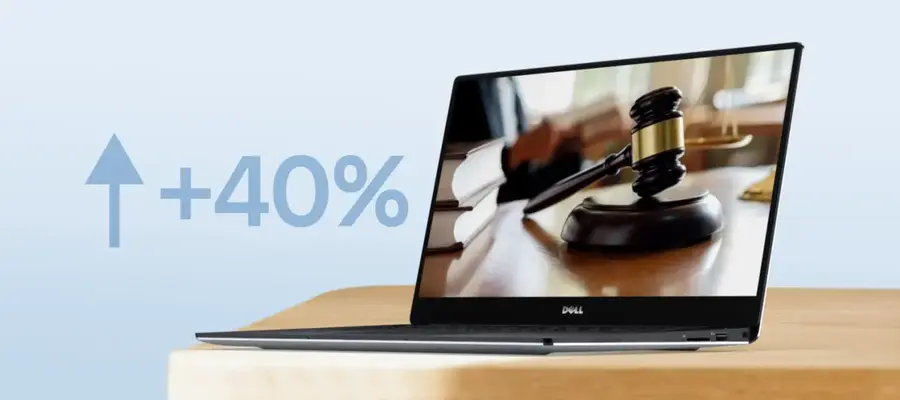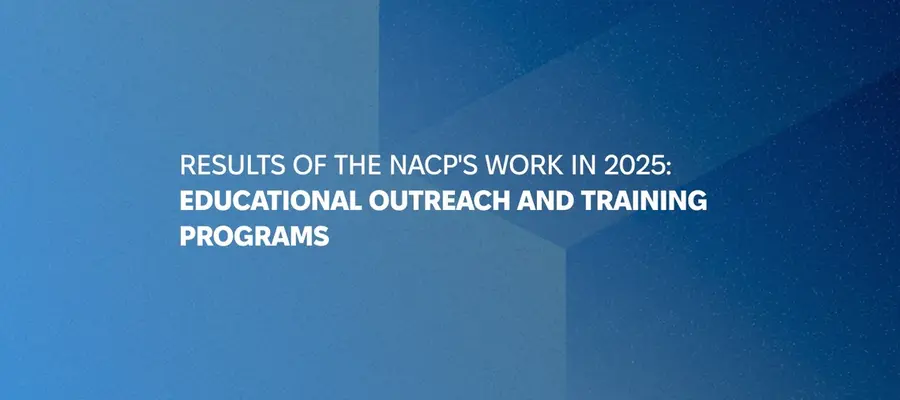In 2023, almost 11,000 corruption and corruption-related criminal offences were recorded in Ukraine, of which more than 7,200 were serious and particularly serious crimes. Almost 40% of cases (4,290) were referred to court. More than 1,500 people were convicted of corruption and corruption-related criminal offences, which is 40% more than in 2021 and 2022. The largest number of convicted persons — 1,251 — were convicted for offering, promising or providing undue benefits to public officials, which is the most common form of corruption in Ukraine. This is stated in the Report on the analysis of court practice regarding corruption and corruption-related criminal offences in 2023 (Report), presented by the National Agency on Corruption Prevention (NACP) in cooperation with the Centre for Political and Legal Reforms and with the support of the EU Anti-Corruption Initiative in Ukraine (EUACI). The report was prepared in accordance with the State Anti-Corruption Programme (SACP) for 2025.
According to NACP Head Viktor Pavlushchyk, one of the main principles of effective anti-corruption policy is ensuring the inevitability of punishment for corruption offences, which creates an additional deterrent effect for all subjects of legal relations.
"The analysis revealed a number of challenges. For example, in some criminal proceedings for abuse of power, 8-10 years passed between the commission of the offence and the delivery of the verdict, with an average of 7 years. The period between the commission of the offence and the closure of criminal proceedings due to the expiry of the statute of limitations sometimes reaches 15–17 years, with an average of 12 years. That is why the effective implementation of the principle of inevitability of punishment depends on the coordinated work of the prosecution and pre-trial investigation, consistency in judicial practice, and timely identification of problems in criminal justice. This work brings together a significant number of stakeholders and requires data, the collection and formation of which is a prerequisite for effective state anti-corruption policy in general.
Such reports based on judicial practice are extremely important for making informed decisions, adjusting legislative approaches and improving the overall effectiveness of the anti-corruption system,' said Viktor Pavlushchyk.
This is the second report of its kind — last year, the results of an analysis of judicial practice for 2022 were presented.
"We are seeing an overall increase in the number of convictions handed down on the basis of plea agreements. The exception is convictions under articles relating to obtaining undue benefits, misappropriation and embezzlement of property, and declaration of false information. A positive aspect is that these verdicts are usually handed down dozens of times faster than those handed down in the general procedure. Only a few cases can be considered for years, and this problem requires additional analysis by judicial institutions. For some reason, the length of proceedings is more often determined by the severity of the offence than by the complexity of the proceedings. At the same time, there is a negative aspect: the lack of an obligation to investigate the circumstances of the case when approving a settlement leads to a failure to investigate facts that may affect the classification of the act,’ said Mykola Kharvoniuk, Director of Scientific Development at the Centre for Political and Legal Reforms.
He also concluded that there is a clear need to amend the Criminal and Criminal Procedure Codes. In particular, this concerns harmonising the articles providing for liability for embezzlement, misappropriation of property and abuse of power or official position with the UN Convention against Corruption, as well as revising the limitation periods in Articles 49 and 80 of the Criminal Code for corruption offences. The practice of applying Article 366-3 of the Criminal Code (failure to submit a declaration) has shown that the offenders are mainly persons who did not hold responsible positions. It is therefore appropriate to leave the obligation to submit a declaration upon dismissal only for those who held responsible positions and positions with a high risk of corruption. It is also worth clarifying Part 7 of Article 474 of the Criminal Procedure Code by stipulating that the court must refuse to approve an agreement in the event of any incorrect legal classification of the offence.
The event was also attended by Oleksandr Sydelnikov, Head of the Anti-Corruption Support Component of the EU Anti-Corruption Initiative in Ukraine (EUACI), Tetiana Getmantseva, Head of the Anti-Corruption Policy Department at the NACP, and Volodymyr Kharchenko, Head of the Department for the Generalisation of Data on Corruption and Anti-Corruption at the NACP's Anti-Corruption Policy Department.
For reference: The report on the results of the analysis of judicial practice regarding corruption and corruption-related criminal offences in 2023 consists of the following sections:
- analysis of statistical data on pre-trial investigations of corruption and corruption-related offences, including criminal offences;
- analysis of court practice in bringing to criminal responsibility for corruption and corruption-related criminal offences in 2023.
- general conclusions and proposals









